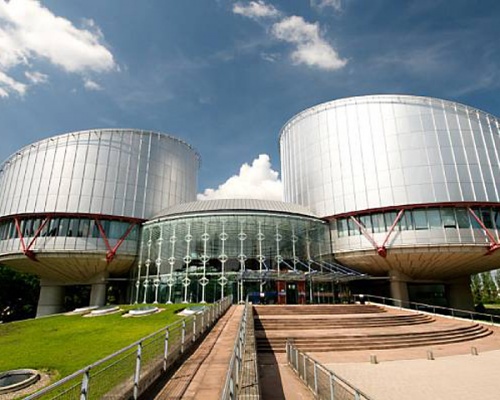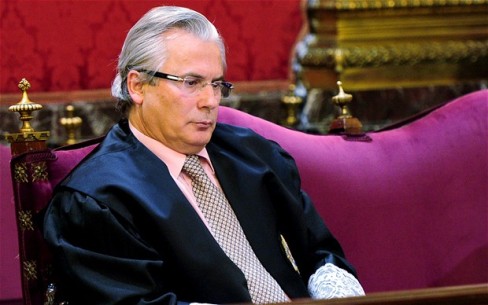Martine Herzog-Evans is a Law Professor at the University of Reims, France and specialises in criminology and prison law.

The Case – European Court of Human Rights, Grand Chamber, Boulois v. Luxembourg, applic. n° 33575/04
Mr Boulois, was imprisoned in Luxembourg, he filed several requests in order to obtain prison leave, which were all rejected by the Prison Board. He then lodged an application for judicial review with the Administrative Court. However, the Administrative Court denied it had jurisdiction to examine the application. In his application against the Grand Duchy of Luxembourg, Mr Boulois claimed that Article 6§1 of the ECHR had been violated arguing that he did not have access to a fair hearing or to a court. After the First Section of the ECtHR ruled in his favour, the government of Luxembourg requested for the case to be referred to the Grand Chamber.
The Ruling
« The Court reiterates that for Article 6 § 1 in its “civil” limb to be applicable, there must be a dispute… over a “right” which can be said… to be recognised under domestic law» (§90)
« the Court observes that section 6 of the 1986 Law defines prison leave as… a “privilege” which “may be granted” to prisoners in certain circumstances» (§96)
« Thus it was clearly the legislature’s intention to create a privilege… the present case concerns a benefit created as an incentive to prisoners ». (§98)
« … the applicant could not claim, on arguable grounds, to possess a “right”» (§101)
« Furthermore… although the Court has recognised the legitimate aim of a policy of progressive social reintegration of persons sentenced to imprisonment… neither the Convention nor the Protocols thereto expressly provide for a right to prison leave» (§ 102).
« There has therefore been no breach of Article 6 » (§105).
Observations
In some European states, release and prison management decisions such as whether to grant prison leave, are deemed ‘administrative’ and are made by the executive. However, in France and other European countries such as Belgium, Spain, Italy, Germany, they are deemed to be of a ‘penal’ nature and a judge makes the decision. This often consists of a hearing, where a lawyer can defend the inmate and, appeal, and even access to the highest court (Padfield and al. 2010). It appears that there is no clear consensus in Europe as to the very nature of what French law calls ‘sentence management measures’.
Despite ruling in Ganci v. Italy (30 Oct. 2003, n° 41576/98) that Article 6 applied to a disciplinary sanction if it affected civil rights such as family contacts; and in Enea v. Italy (Gd Chamber, 17 Sept. 2009, n° 74912/01), that a security prison regime affecting visitation did affect ‘civil rights’; in Boulois, the Grand Chamber analyses the request for prison leave as not being of a ‘civil’ nature. According to Luxembourg’s legal system, prison leave is a ‘privilege’ which aims at ‘encouraging’ prisoners, this corresponds to the historical view that prison leave is used to control prisoner’s behaviour. In view of modern penological goals, prison leave now serves two purposes: firstly, to allow prisoners to prepare their future and inevitably – except for lifers – release (e.g. by trying to find a job) ; secondly, to keep in contact with their families. Family rights are particularly important as they play a key role in deterring crime and are protected under Article 8 (Maruna, 2001; Farrall, 2002).
Prison leave should not be seen as a ‘privilege’. As stated above, in most modern nations, it is no longer seen as being a purely behavioural tool. It is true that most legal systems contain provisions which state that inmates ‘may’ or ‘can’ be granted prison leave. The ECtHR has itself ruled several times that by using the word ‘can’ does not mean that the authority or judge has full discretionary power ( Lambourdière v. France, 2 Aug. 2000, n° 37387/97 and Camps n. France, 23 Nov. 1999, n° 42401/98). It has been argued numerous times (e.g. in Herzog-Evans, 2012), that such legal provisions should be interpreted reasonably. Indeed when the law states that an offender ‘can’ be released or granted prison leave, it does not imply that he has an absolute right to either. Conversely, it does not mean that once all legal conditions and requirements are met, the court or governing authority can still deny the offender’s application simply ‘because it can’. One should not confuse discretion with whim. According to a fairer interpretation, when a legal system uses the verb ‘can’, it means that once all legal requirements are met – and this should include the protection of the public – then the authority or court should grant release or prison leave. In other words, even when ‘can’ is used, there is indeed a right to prison leave once its conditions are met.
According to the Grand Chamber, however, there is no such thing as a European principle of ‘reintegration’. The court only refers to the conventions and protocols, without mentioning recommendations. Recommendations may be deemed as being mere ‘soft law’; nonetheless, they do represent a consensus between European countries. Precisely, and to quote only a few, the European Prison Rules (2006, preamble), the European Probation Rules (2010, section 2), and Recommendation (2003)22 (preamble) all refer to reintegration as being a fundamental principle. In other words there is indeed a consensus amongst European member states relating to the importance of reintegration.
Finally, one must look at the bigger picture: the right to a fair trial as laid out in Art. 6, is not only a humanitarian procedural luxury that Western countries can afford. Fair trial is first and foremost the mark of a democracy. In most modern democracies, the right to a fair trial conquers more and more legal territories. In France, for instance, it now applies to disciplinary sanctions, solitary confinement decision-making, release, recall, and other sanctions. Besides, from the criminological viewpoint, Art.6 is an essential component of the legitimacy of justice. As empirical studies have shown (Tyler, 1990; Tyler and Huo, 2002) it fosters compliance (Liebling, 2007) – probably substantive compliance as opposed to instrumental compliance (Robinson and McNeill, 2008) – in other words it is essential to grant leave from prison in order to prevent reoffending.


